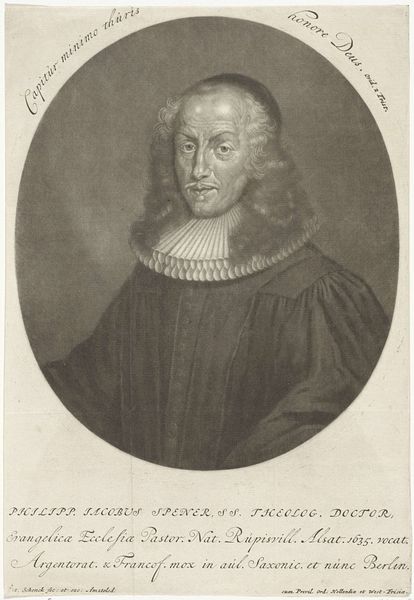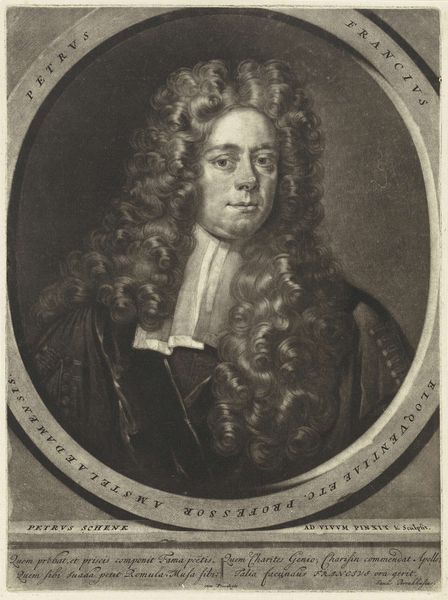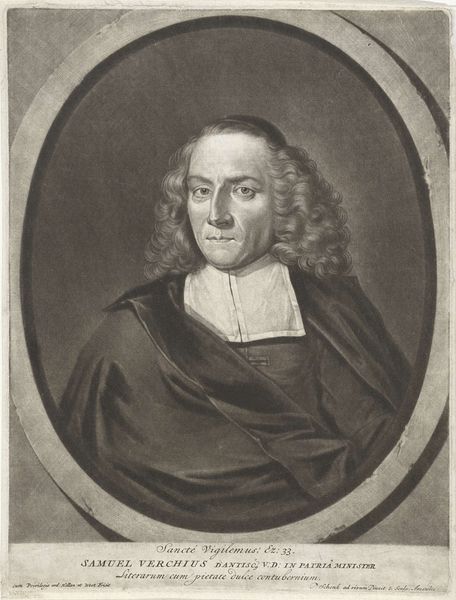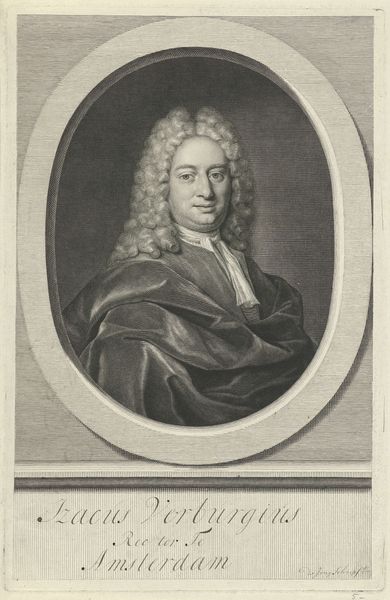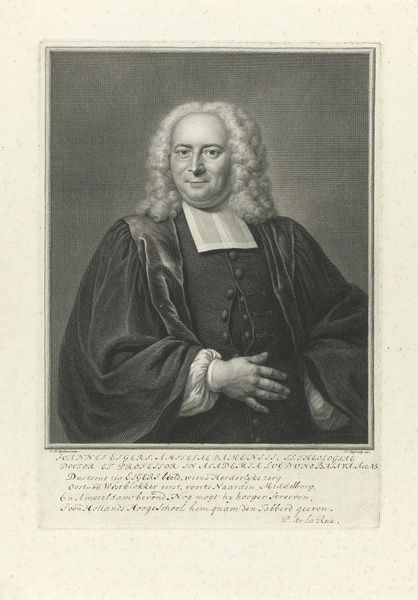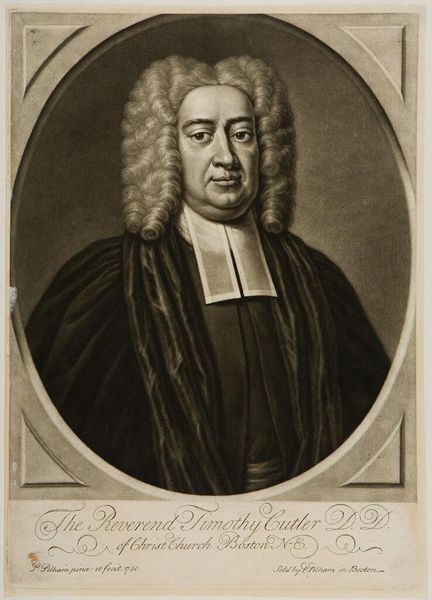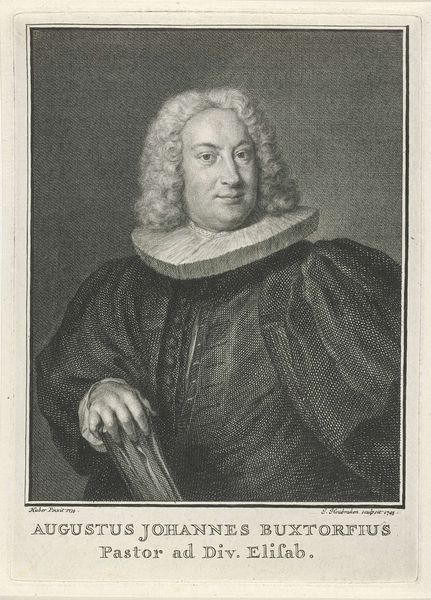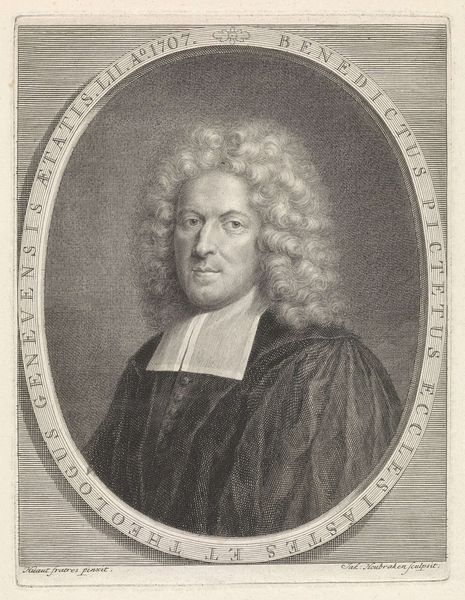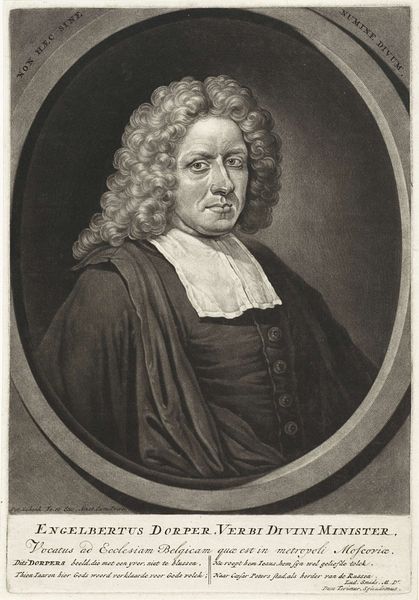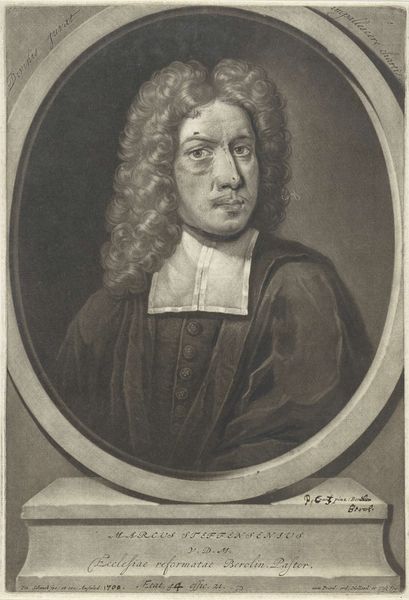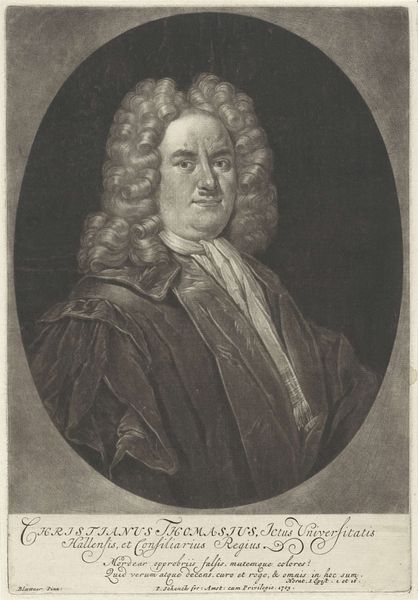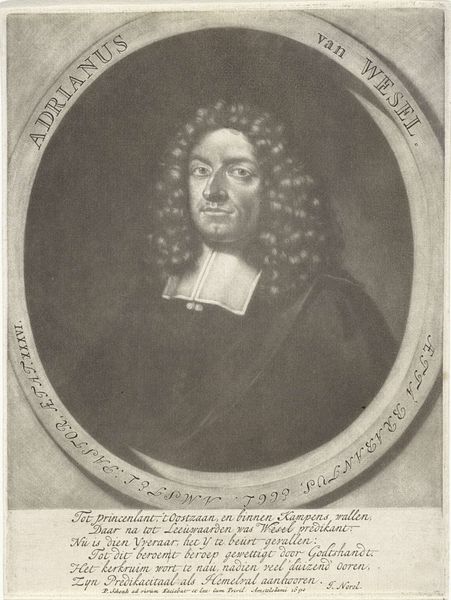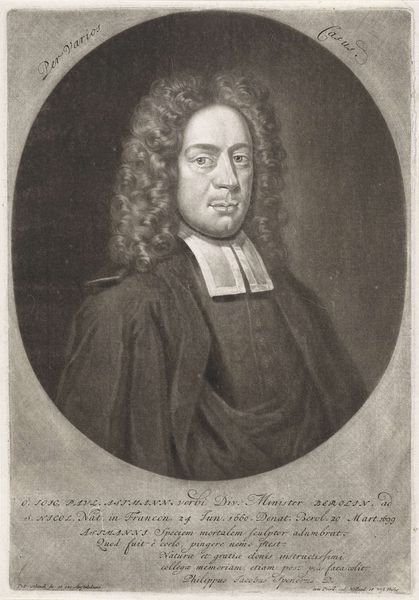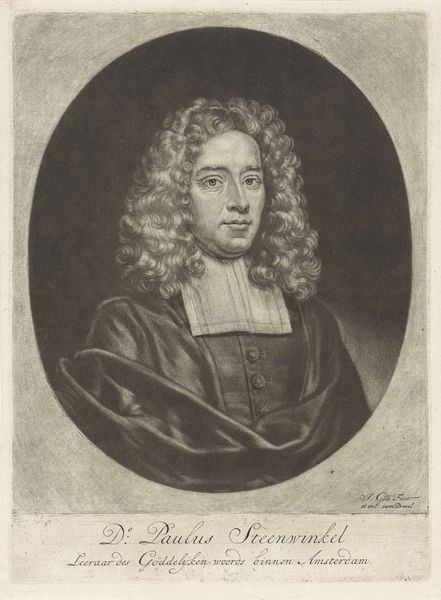
drawing, print, ink, engraving
#
portrait
#
pencil drawn
#
drawing
#
baroque
# print
#
charcoal drawing
#
historical photography
#
ink
#
pencil drawing
#
engraving
Dimensions: height 256 mm, width 175 mm
Copyright: Rijks Museum: Open Domain
This is a portrait of the theologian Philipp Jacob Spener, made by Pieter Schenk in the late 17th or early 18th century. It's an etching, a printmaking process that relies on the corrosive action of acid to create lines in a metal plate. The etcher carefully coats a copper plate with a waxy, acid-resistant substance called ground, then draws through it with a needle to expose the metal. After immersing the plate in acid, the drawn lines are bitten into the surface. Ink is then applied, and the plate is pressed onto paper, transferring the image. Look closely and you can see the fine, precise lines that define Spener's features and clothing. This technique, requiring skill and control, was essential for disseminating images and ideas in early modern Europe, acting as a reproductive technology. The resulting prints, like this one, facilitated knowledge and cultural exchange, influencing artistic and intellectual trends across Europe. Appreciating the material process allows us to consider the socio-economic context, and skilled labor, behind this portrait.
Comments
No comments
Be the first to comment and join the conversation on the ultimate creative platform.
